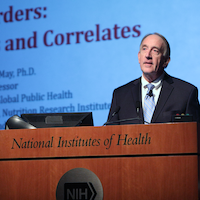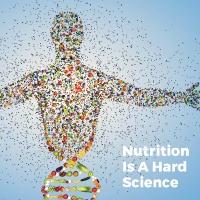Microbiome and Nutrition
The complex community of bacteria, yeasts and viruses living in our intestines, collectively known as the gut microbiome, is shaped, in part, by what we eat. Genetics, environment, and other factors also influence an individual’s microbial community. Research at the NRI investigates these complex relationships and their impact on disease risk. We use animal models and bioinformatics to study the associations between nutritional metabolites, gut microbiome, and health. What happens in the gut doesn’t stay in the gut. Your microbiome can play a role in cardiovascular disease, obesity and diabetes, and even cancer. Our team envisions a future where analysis of your microbiome can determine disease risk, and medical foods can be prescribed to treat and prevent disease by regulating the microbiome.
Publications
Microbiome and Nutrition Publications
2020
Population studies of TMAO and its precursors may help elucidate mechanisms. Meyer K
2019
Association of dietary patterns with the gut microbiota in older, community-dwelling men. Meyer K
2018
Meta-analysis of human genome-microbiome association studies: the MiBioGen consortium initiative. Meyer K
Human microbiota, blood group antigens, and disease. Sumner S
2017
Trimethylamine N-Oxide, the Microbiome, and Heart and Kidney Disease. Zeisel S
2016
Diet and Gut Microbial Function in Metabolic and Cardiovascular Disease Risk. Meyer K
Antibiotic-mediated gut microbiome perturbation accelerates development of type 1 diabetes in mice. Sumner S
Related News
Women’s Health, Preconception Nutrition, and the Right to Choose
December 16, 2018 – If you’ve ever been around a pregnant woman, you’ve probably heard her mention something about food cravings. Or she’s mentioned that she won’t drink coffee or eat Oreos because they are “bad for the baby.” Food is a hot topic during pregnancy because of how it can drastically affect the developing baby. But how many times have you heard a woman mention that she is eating healthier because she is going to try to get pregnant?
December Faculty Focus: Susan Sumner, PhD
December 15, 2018 – Through the ages, science has often been in the company of poetry. They came together recently when Susan Sumner, PhD, described how she got her start in Biomarker Discovery using spectroscopic methods as an undergraduate at North Carolina State University (NCSU): “I found it exciting to envision molecules dancing in multidimensional space in response to applied physical factors such as magnets, radio frequency pulses, or electric fields.”
NRI Faculty Member Receives Prestigious NIAAA Award
December 17, 2018 – Philip A. May, PhD, has received the 2018 Mark Keller Award bestowed by the National Institute on Alcohol Abuse and Alcoholism (NIAAA) at the National Institutes of Health (NIH).
Starving Cells May Lead to New Cancer Treatments
November 20, 2018 – Nutrient availability regulates cell metabolism, growth, and survival. When nutrients are in short supply, cells can pause their growth or even eliminate themselves through a process known as programmed cell death, thereby protecting the health of the organism as a whole. If nutrient deprivation happens at certain critical periods, such as during the rapid growth of the embryonic brain, severe developmental consequences can arise (this is why proper maternal nutrition is so important). In contrast, harnessing the innate ability of cells to enter programmed cell death is an important strategy in cancer treatment.
Nutrition Is a Hard Science
November 20, 2018 – There have been a lot of questions about the reliability of nutritional science. We should respond with an assertive statement: Nutrition is a hard science. By just about any comparison, much of what is known about nutrition and the methods that have built that knowledge is as robust as classical physics, biochemistry and other basic sciences generally recognized as rigorous.
Choline, Cognition and You: The Essential Nutrient for Maximum Brain Power
ESCONDIDO, Calif., June, 23, 2015 /PRNewswire/ -- Choline is critical to overall health and healthy cognitive function. This essential nutrient has an impact on the brain throughout our lives. Choline intake early in life supports the brain as it ages, preventing...







